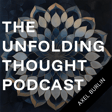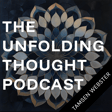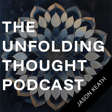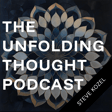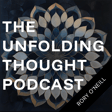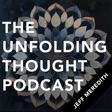
42–Peter Kelly-Detwiler: The Future of Energy and Sustainability
In this episode of The Unfolding Thought Podcast, Eric Pratum speaks with Peter Kelly-Detwiler, an expert in global energy markets and sustainability. Peter discusses the dynamic interplay between technology, economics, and policy shaping the energy sector today and into the future.
Peter addresses critical issues like the complexities of integrating renewable energy sources, the role of AI and advanced software in optimizing grid efficiency, and the geopolitical forces impacting energy markets. He also shares insights into cutting-edge developments such as modular nuclear power, advanced geothermal technology, and innovative storage solutions.
Topics Explored:
- The Evolution of Global Energy Markets
- Sustainability and Energy: Defining Practical Solutions
- The Role of Technological Innovation in Energy Transformation
- AI and Advanced Software Applications in Energy Grid Management
- Challenges and Opportunities in Renewable Energy Integration
- Geopolitical Impacts on Energy Markets and Infrastructure
- Emerging Technologies: Modular Nuclear, Geothermal, and Advanced Batteries
- Strategies for Future Energy Resilience and Adaptability
Links:
- Visit Peter’s website: http://peterkellydetwiler.com
- Connect with Peter on LinkedIn: https://www.linkedin.com/in/peterkellydetwiler/
- Peter’s talk on forecasting challenges in energy: https://www.youtube.com/watch?v=9dveBB-xXs0
- IPCC reports on climate and energy: https://www.ipcc.ch/reports/
For more episodes, visit: https://unfoldingthought.com
Join the conversation by emailing Eric at: eric@inboundandagile.com
